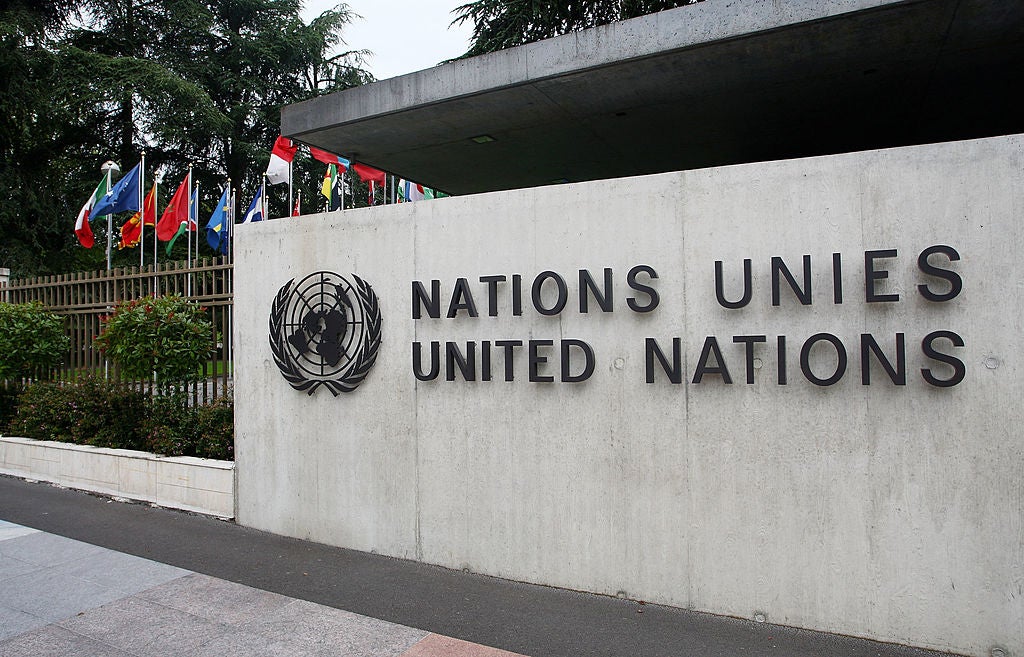Why is the UN set to consider claims the British government is ‘threatening the rule of law’?
Current plans to scrap the Human Rights Act and criminalise refugees are coming under international scrutiny, Lizzie Dearden writes

This November, the United Nations will formally consider accusations that the British government is “threatening the rule of law”.
The sentence may sound dystopian but formal submissions by the Law Society give their reasoning - citing a raft of new laws that could undermine human rights, criminalise refugees and let unlawful conduct by the state go unpunished.
The body, representing more than 200,000 lawyers in England and Wales, is a formal stakeholder for the UN Human Rights Council.
It has made its submission for the “Universal Periodic Review”, which probes the human rights records of all member states, makes recommendations and then holds countries accountable for implementing them.
The Law Society’s six-page submission makes grim reading, and concludes with calls for the government to stop its planned replacement of the Human Rights Act, remove parts of the Judicial Review and Courts Bill that would “undermine access to justice and the accountability of government” and scrap plans to criminalise refugees based on their method of arrival to Britain.
Whether the UN will take up the recommendations remains to be seen, but their existence should set off alarm bells.
Boris Johnson and government ministers frequently like to proclaim the UK’s historic status as a bastion of fundamental freedoms and the rule of law, but the Law Society document paints a picture of all-out assault on human rights.
The most direct attack is contained in the plans for a “Bill of Rights”, which would replace the Human Rights Act.
The government’s proposals include the introduction of a permission stage for human rights claims, where people would have to prove they have suffered “significant disadvantage” from violations before having their case heard.
“We are gravely concerned that such a high threshold would be a serious threat to accessing justice by preventing meritorious cases where a violation of human rights has occurred from being considered by the courts,” the Law Society said.
“This would allow state authorities to act with impunity in ‘lower-level’ cases and undo the progress that has been made towards authorities embedding human rights considerations into their decision-making.”
The document said the plans would also “shield public authorities from scrutiny by the courts” by removing the duty to implement laws in a way that respects human rights.
It is proposed that certain rights, including private and family life, should not prevent the deportation of foreign offenders - “effectively stripping individual rights on a blanket basis”.
“No rights-respecting nation should be prepared to take forward these suggestions,” the Law Society said.
It also detailed changes under the Judicial Review and Courts Bill, which it said would “weaken the accountability of government” and “greatly reduces the consequences of an illegal action”.
The Law Society said the Nationality and Borders Bill, which is also before parliament, appears to violate the UN Refugee Convention by creating a two-tier system where asylum seekers are differentiated by how they arrive in the UK.
It would also raise the threshold for being recognised as a refugee, from showing “a reasonable likelihood of being persecuted” to the danger being “on the balance of probabilities”.
The Home Office is no stranger to criticism of the law, which has already been voiced by lawyers, MPs, committees and even the UN Refugee Agency itself.
A government spokesperon said: “All our reforms adhere fully to the rule of law and will allow us to strike a proper balance between individual rights and the wider public interest, while giving judges the flexibility and powers to ensure the government is held to account. Through the Nationality and Borders Bill we will fix our broken asylum system, helping those in genuine need while tackling people smuggling gangs.”
The government will have to work harder than that to justify its actions if the UN Human Rights Council finds against its plans.
Join our commenting forum
Join thought-provoking conversations, follow other Independent readers and see their replies
Comments


Bookmark popover
Removed from bookmarks